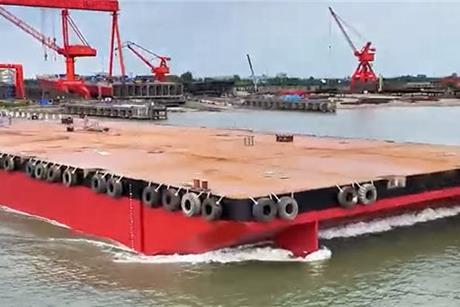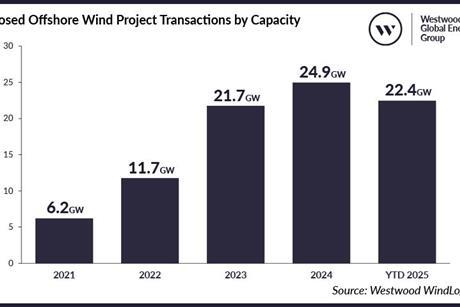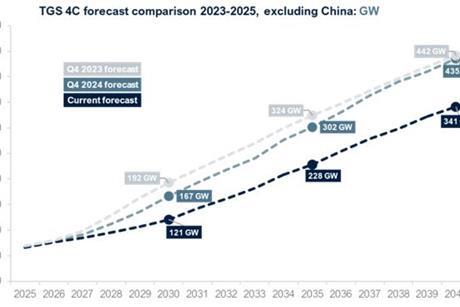Insight
deugro invests as modularised construction grows
Project forwarder deugro has invested in specialised marine assets in the Middle East to strengthen its ability to execute complex projects.
Sarens flags pressures reshaping onshore energy projects
Heavy lift and transport engineering specialists are adapting to a new onshore energy landscape, punctuated by larger components, accelerated delivery schedules and increasingly complex regulatory demands. Sarens, argues that modularisation, resilience planning and advanced crane strategies are of increasing importance.
Rhenus Logistics deepens renewables push
Rhenus Logistics is expanding its footprint in renewable and energy-intensive projects, with a growing focus on fuel cell installations and data centre logistics. As demand accelerates across the US East Coast and South America, the company said tender decisions are shifting beyond price alone to place greater weight on QHSE performance, engineering depth and end-to-end project management.
Port go-aheads beckon project players
A series of newly approved port projects across New Zealand and Australia is set to unlock major opportunities for project forwarders and heavy lift operators.
2K Shipping opens in Hamburg as demand stays strong
2K Shipping is opening an office in Hamburg, Germany, as the Turkish multipurpose operator builds on steady demand for its project cargo services. With an active pipeline of energy, infrastructure and industrial investment, the company is looking forward to a “constructive” year ahead.
A profound and positive transformation
The Middle East’s logistics and transportation sector is undergoing a profound and positive transformation, according to Mohamed Ibrahim Elorbany, general manager of Egytrans Arabia. This shift is largely driven by massive government-led spending and ambitious national economic strategies, which are positioning the region as a pivotal global trade hub connecting Asia, Africa, and Europe.
Infrastructure investment fuels project cargo growth in GCC
Investment in civil infrastructure across the Gulf Cooperation Council and the wider Middle East region is surging. Project forwarder Iscotrans expects the sector to be a major driver of activity in 2026 and beyond.
Logisticians fight back on theft
Organised cargo theft groups are adapting to tighter anti-fraud controls, shifting away from complex digital scams towards simpler, high-impact physical theft, according to CargoNet. As criminals target fewer but higher-value shipments, operators are responding with layered tracking, sensor-based monitoring and real-time visibility to close emerging security gaps. Reporting by Gregory DL Morris and Joshua Allen.
HPL One bets on long-term boom
Launched in August 2025 and headquartered in the UAE, HPL One sat down with HLPFI to discuss the Middle East’s evolving project landscape and how the company is positioning itself to fill the gap between global freight giants and local specialists.
Opportunities rise with Africa’s vast scale
The scale and diversity of the African continent poses challenges for project logistics providers – and offers opportunities in renewables, infrastructure, mining and more. Daniel Searle reports.
Big potential, uncertain timing
Decommissioning of upstream oil and gas assets could potentially generate work worth billions of dollars for heavy lift service providers over the next couple of decades. However, timing the market remains a perennial challenge, writes Phil Hastings.
Carrying on the legacy
Anshuman Banka, director at Prism Logistics, sat with HLPFI editor David Kershaw to discuss the company’s growth into a major player in project logistics and heavy transport engineering.
























